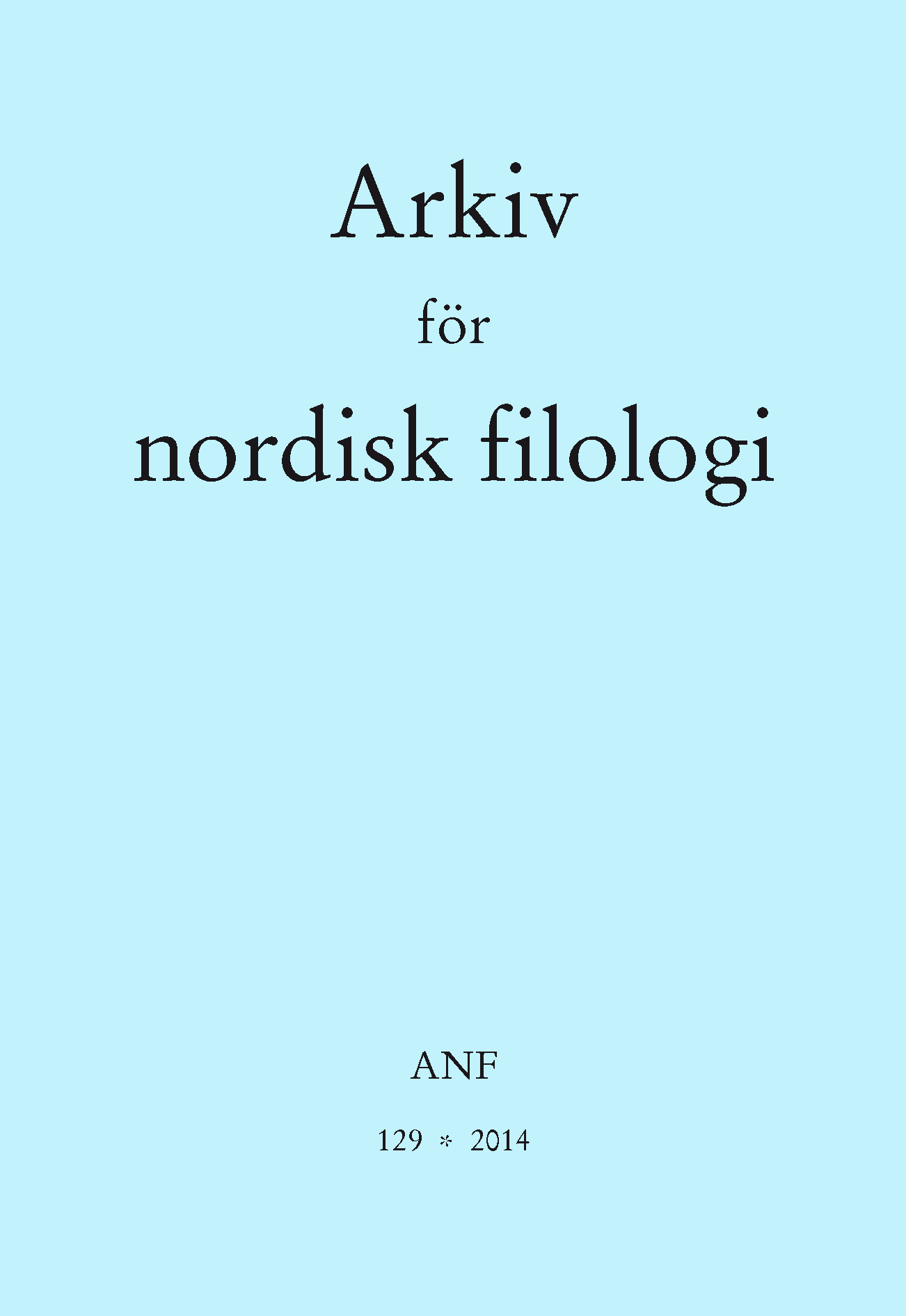Illuga saga Gríðarfóstra in Sweden
Textual Transmission, History and Genre-Formation in the Seventeenth and Eighteenth Centuries
Abstract
This article looks at the manuscript transmission and production of the first edition of Illuga saga, a short and somewhat fantastic fornaldarsaga, in Sweden in the
seventeenth and eighteenth centuries. Through a consideration of all of the six manuscripts of this saga which appear in Swedish archives, an analysis of how a saga with no ostensible interest for Swedish gothicism came to be produced as an edition within that cultural movement is presented. The hero, Illugi, can be linked genealogically to Swedish heroes, and the Danish king in the saga is reinterpreted as a petty king of Skåne within the Swedish realm. Such ideas were emphasised in eighteenth-century Swedish historical works, which used editions such as that of Illuga saga as source material. Furthermore, the intertextual reading required to make such arguments can be seen as leading to an awareness of a connection between a group of texts, which later would be formalised into the genre of fornaldarsögur.


